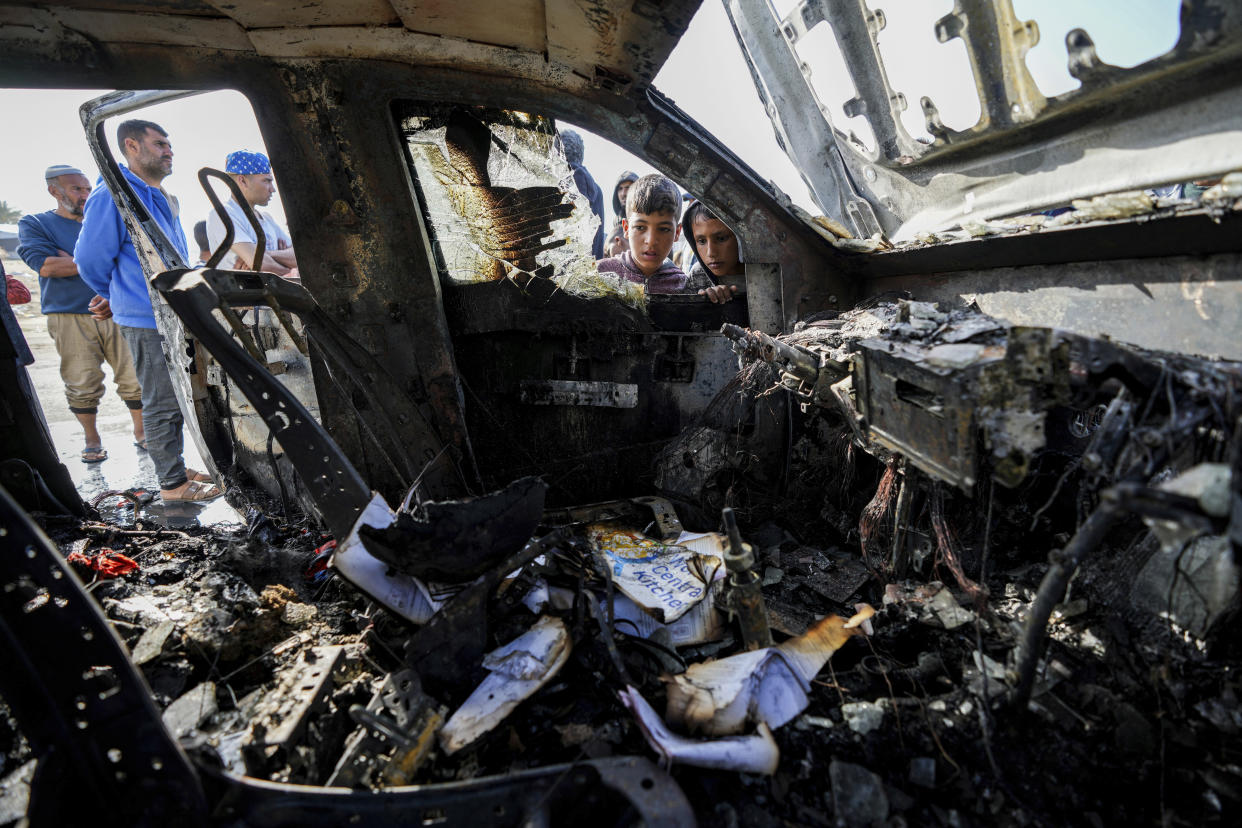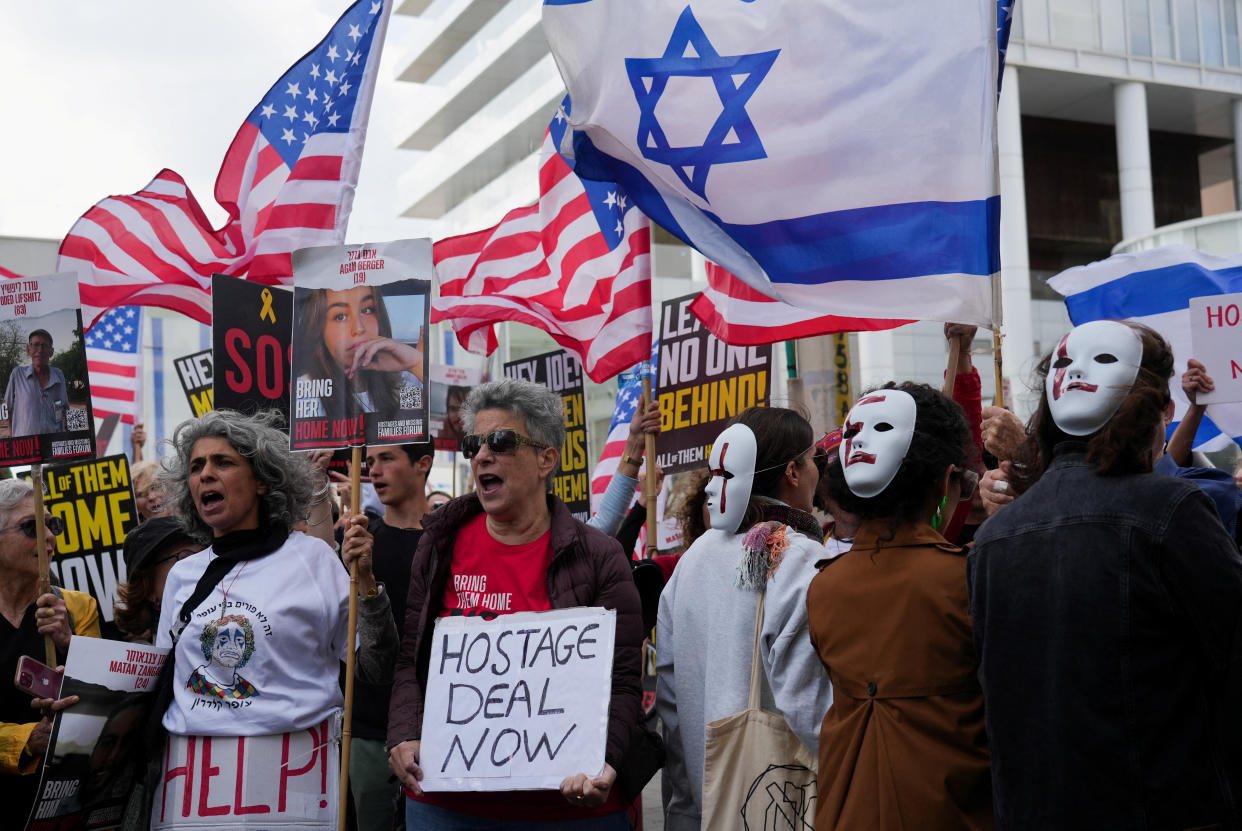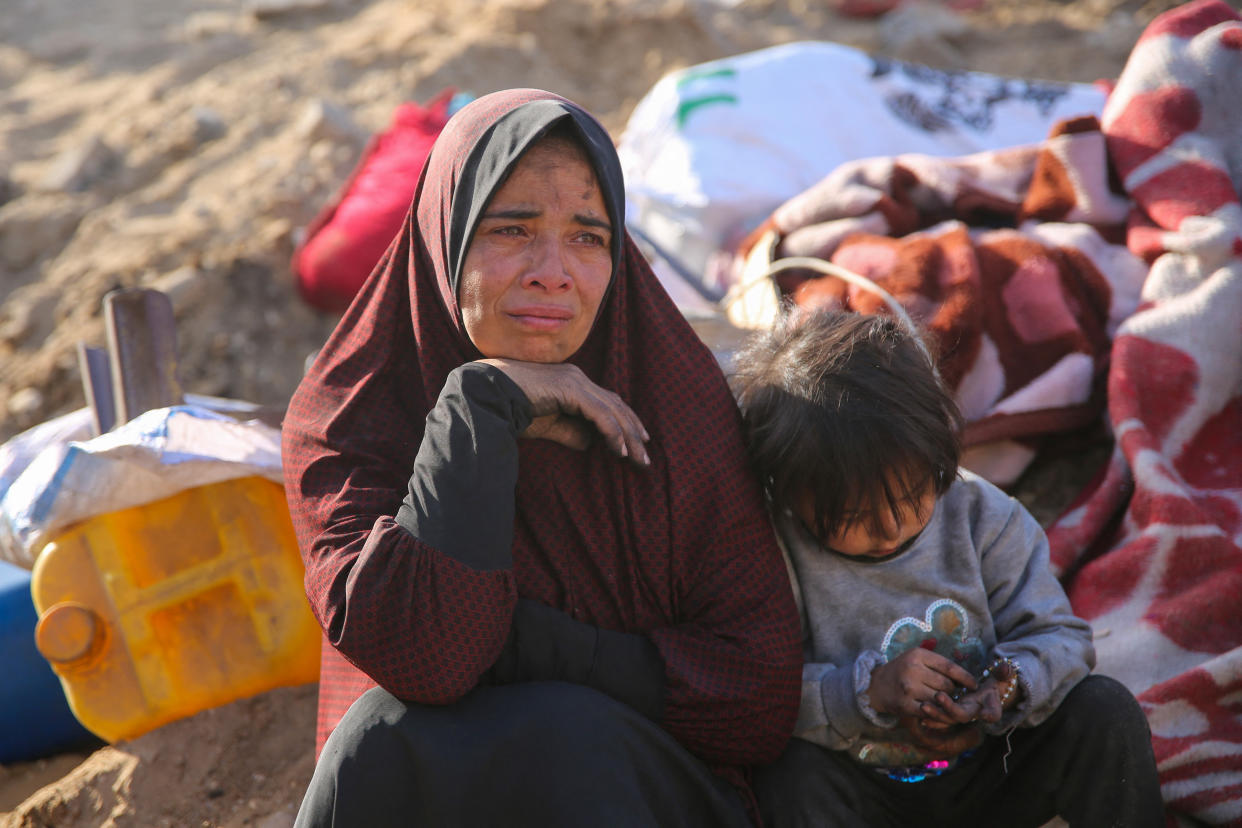Israel and Hamas reach six months of war. Here's where the conflict stands.
Sunday marks six months since the Hamas militant group launched an unprecedented attack on Israel, killing around 1,200 people and kidnapping about 250 hostages, including children, women and the elderly.
Israel subsequently declared war against Hamas, prompting a fierce military ground offensive in the Gaza Strip along with a total siege of the enclave, cutting off electricity, fuel, water and food.
Since Oct. 7, 2023, Israel has launched a number of strikes targeting Hamas in Gaza, resulting in mass civilian casualties and damage to critical infrastructure — and now the United Nations says the threat of famine is imminent.
“Six months on, we are at the brink of mass starvation, a regional conflagration of a total loss of faith in global standards and norms,” United Nations Secretary-General António Guterres told reporters on Friday. “It is time to step back from the brink, to silence the guns, to ease the horrible suffering and to stop the potential famine before it is too late.”
Here’s where the Israel-Hamas war stands six months in.
A tipping point in the war?
Seven aid workers from World Central Kitchen (WCK) who were distributing desperately needed aid in Gaza on Monday were killed in an Israeli airstrike, which Israel claimed responsibility for, calling it a “grave mistake.” Among the aid workers killed were three British nationals, citizens from Australia and Poland, one Palestinian worker and a U.S.-Canada dual citizen.
President Biden said he was “outraged and heartbroken” over the tragedy and called on Israel to complete an in-depth and swift investigation into the strike.
The Israeli military on Friday announced that two of its officers were dismissed over the drone strikes on the WCK aid workers, saying the officers violated rules of engagement. It says it has also reprimanded three senior commanders.
On Thursday, in a 30-minute phone call, Biden spoke with Israeli Prime Minister Benjamin Netanyahu for the first time following Monday’s airstrike on the WCK aid workers. It was the first time since the start of the conflict that the Biden administration appeared willing to place conditions on its policy toward Israel if it doesn’t make specific changes to improve the humanitarian situation in Gaza.
“What we are looking to see and hope to see here in coming hours and days is a dramatic increase in humanitarian assistance getting in, additional crossings opened up and a reduction in the violence against civilians and certainly aid workers,” John Kirby, White House national security communications adviser, said Thursday.

Ceasefire negotiations and hostage status
Several ceasefire negotiations between Israel and Hamas have been brokered by Egypt and Qatar while being backed by the U.S. since November’s extended truce that saw the release of more than 100 Israeli hostages in exchange for Palestinian prisoners. But so far none have come to fruition, with the latest round this week appearing to have stalled, Reuters reports.
Hamas wants a deal to permanently end the war, while Israel has maintained it will only consider a temporary truce in order to free more than 100 hostages that remain held by the militant group. An Israeli military report believes one-fifth of the hostages that remain have died.
The U.S. has been pushing for a six-week ceasefire to allow the hostages to get out, as well as to allow for more humanitarian aid to get into Gaza, Kirby told reporters.

Israel remains on high alert
On Monday, an alleged Israeli strike on Iran’s consulate building in Damascus, Syria, killed Brigadier General Mohammad Reza Zahedi, a senior commander in Iran’s Islamic Revolutionary Guard Corps and six others.
Following the attack, Iranian Supreme Leader Ayatollah Ali Khamenei vowed revenge on Israel in a speech this week.
Israel has since put its embassies around the world on high alert as concerns of a wider regional war have sparked once again.
Death toll and injured as a result of the war
Since the start of the Israel-Hamas war:
More than 33,000 Palestinians have been killed and over 75,000 Palestinians have been reported injured, the Gaza health ministry said on Thursday.
More than 13,800 Palestinian children have reportedly been killed.
Just over 12,000 children have been injured in Gaza, according to Save the Children, a non-governmental organization (NGO) based in the U.S.
At least 1,000 children have had one or both legs amputated, according to UNICEF, the U.N. children’s agency.
Nearly 200 aid workers have been killed in Gaza, according to Aid Worker Security Database.
At least 256 Israeli soldiers have been killed and over 3,000 have been wounded, according to the Israeli military.
Doctors Without Borders Secretary General Christopher Lockyear, who visited health care teams in Gaza in late March, told reporters during a press call on Thursday: “Many patients die in agony and pain that we cannot medicate. Survivors need surgeries and rehabilitation that we cannot provide at the scale needed.”
Humanitarian situation in Gaza
The Israeli military controls what aid comes into Gaza by land, air and sea. Aid organizations and governments of the U.N., including the U.S., have claimed Israel has placed extensive restrictions on aid entering Gaza by land, while Israel has long denied those accusations.
Since the seven aid workers from WCK were killed by an Israeli airstrike, the majority of the roughly 980 NGOs in Gaza have ceased their operations.
The amount of humanitarian supplies entering Gaza hasn’t increased, nor has there been a change in improving access to the north of the enclave, according to the U.N. Relief and Works Agency. A daily average of 169 aid trucks enter south Gaza through two land crossings, which is well below the goal of 500 trucks, which was the rate at which they were crossing before Oct. 7, according to the World Health Organization.
The 2.4 million people in Gaza are facing dire levels of hunger, according to a U.N.-backed report published last month. It projected imminent famine for the people in northern Gaza, while half of all people in the enclave were feeling “catastrophic” hunger.
Since January, the people of northern Gaza have been forced to survive on 245 calories per day, which is less than a can of beans, according to a report by Oxfam, an NGO based in Kenya.
About 1.7 million people — over 75% of the population in Gaza — have been displaced as a result of Israel’s ground invasion. Many of them have been displaced multiple times since Oct. 7.

Damage to Gaza’s infrastructure
The cost of damage to critical infrastructure as a result of the ongoing conflict is estimated at around $18.5 billion, according to an assessment by the U.N., World Bank and European Union.
As a result of the ongoing conflict, about 62% of all homes in Gaza have been destroyed, while 84% of all health facilities have been damaged or destroyed, the assessment found.
What’s next?
Hours after Biden’s phone call with Netanyahu on Thursday, Israel announced it would temporarily allow additional aid routes, including the Erez crossing in northern Gaza and through the Port of Ashdod in Israel, as well as increase Jordanian aid through the Kerem Shalom crossing in southern Gaza.
While the U.S. welcomed the news, it wants Israel to take action. “The real test is results, and that’s what we’re looking to see in the coming days and the coming weeks,” Secretary of State Antony Blinken said Friday.
Meanwhile, Axios reported that CIA Director Bill Burns is expected to travel to Cairo this weekend to meet with the chief of Mossad, Israel’s national intelligence agency, as well as with top Qatari and Egyptian officials, in an effort to secure the Hamas-held hostages.


